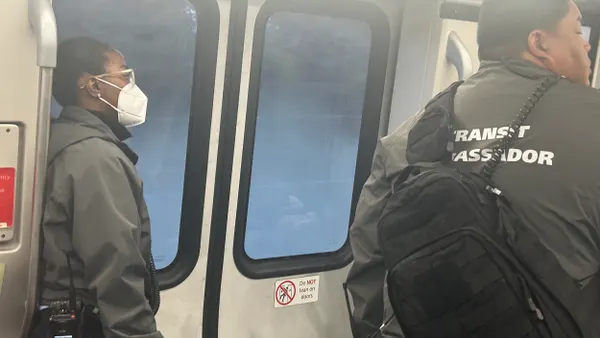Dive Brief:
-
States may be inadvertently sharing drivers’ personal data with federal immigration authorities, according to a letter two U.S. senators and 38 representatives sent to 19 Democratic governors this week.
- The National Law Enforcement Telecommunications System, or Nlets, which is managed by state police agencies, gives federal, state and local law enforcement agencies real-time access to states’ Department of Motor Vehicles databases, the letter states.
- It urges the governors to request detailed briefings from their state Nlets coordinators, make public the aggregate statistics on data requests and disclosures to federal immigration authorities and implement technical blocks to prevent data-sharing with the Department of Homeland Security and its agencies.
Dive Insight:
States are providing Immigration and Customs Enforcement and other federal agencies “with frictionless, self-service access to the personal data of all of your residents” through the system, according to the letter.
In addition to providing the data from driver’s licenses and state-issued ID cards, 41 states share driver’s license photos through Nlets, which could allow federal agents to instantly identify individuals using a facial recognition smartphone app called Mobile Fortify, it said.
Mobile Fortify “allows agents to perform real-time facial recognition and fingerprint scanning during field operations,” according to Gonzalez Olivieri, an immigration law firm.
In September, nine Democratic senators wrote a letter to acting ICE Director Todd Lyons urging ICE to stop using Mobile Fortify, stating it allows ICE to “aggressively expand its biometric [data] collection activities across the United States.”
States can decide what data they make available through Nlets and what queries they permit federal and out-of-state law enforcement agencies to make, according to the Nov. 12 letter to governors. “Because of the technical complexity of Nlets’ system, few state government officials understand how their state is sharing their residents’ data with federal and out-of-state agencies,” the letter states, suggesting that more states would block the data-sharing if they better understood the system.
As of early November, Illinois, Massachusetts, Minnesota, New York and Washington had blocked ICE access to the database; Oregon is in the process of doing so, according to a press release from Sen. Ron Wyden, D-Ore., one of the letter’s signatories.
“Nlets is just the latest revelation on how liberal states and even sanctuary cities are making ICE’s job way too easy,” Will Owen, communications director of the Surveillance Technology Oversight Project, said in an emailed statement. “Driver’s licenses contain some of our most sensitive information, including our home addresses and ID photos ICE can use for biometric surveillance. By not imposing stricter guardrails, Democratic lawmakers are basically handing this data over to ICE, breaking any promise of sanctuary they’ve made to immigrant communities.”
Nlets and ICE did not respond to requests for comment.













